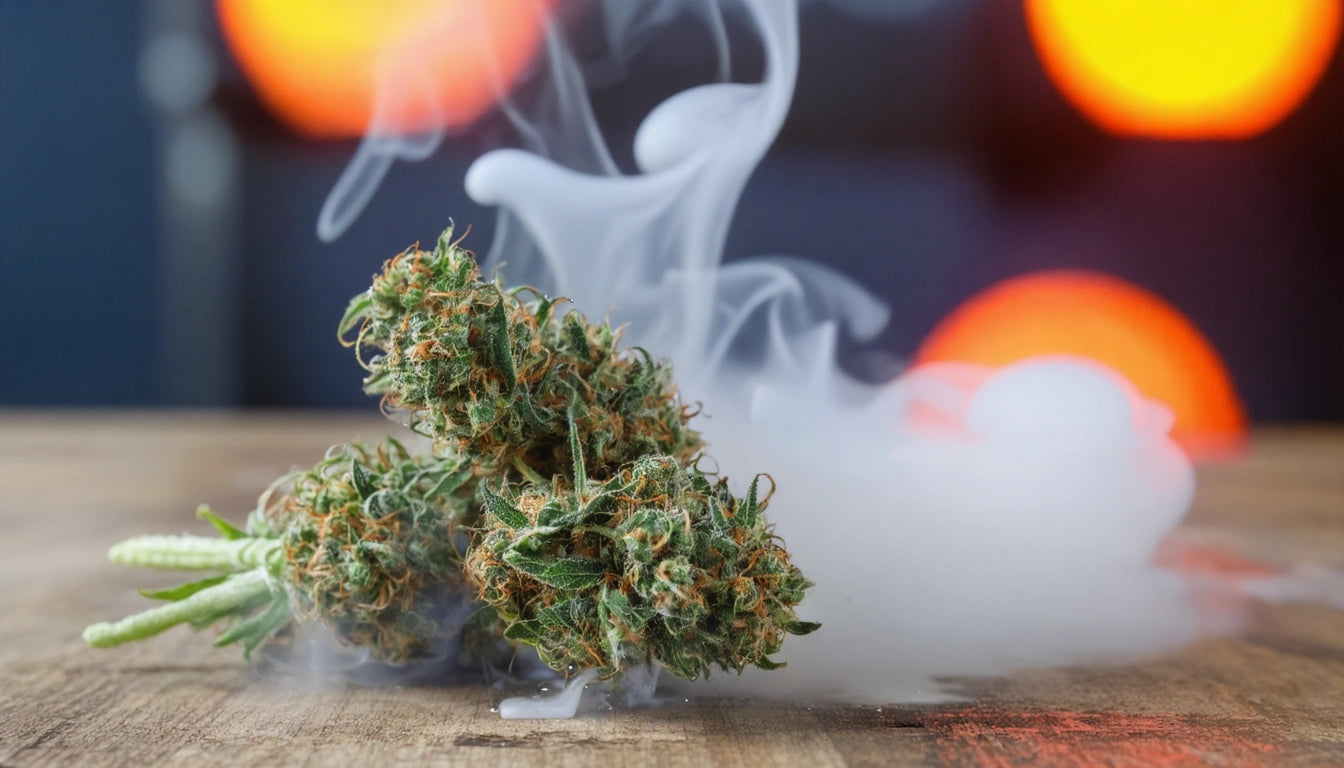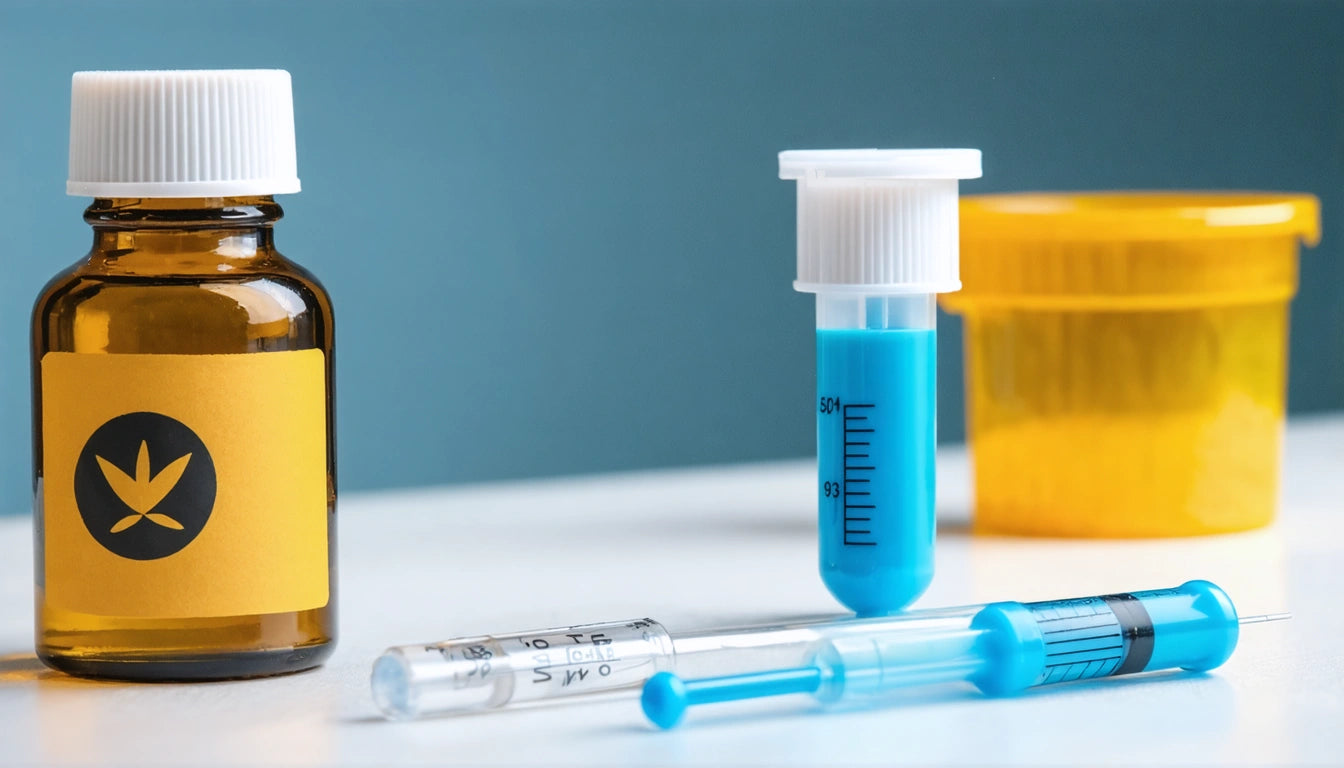Table of Contents
Does Smoking Pot Make You Sleepy or Improve Sleep Quality?
Many cannabis users report feeling drowsy or relaxed after consumption, prompting the common question: does pot make you sleepy? The relationship between cannabis and sleep is complex, involving various cannabinoids, terpenes, individual physiology, and consumption methods. Understanding these factors can help users make informed decisions about using cannabis for sleep-related purposes.
The Cannabis-Sleepiness Connection: Why Does Pot Make You Sleepy?
Cannabis contains over 100 cannabinoids, with THC (tetrahydrocannabinol) and CBD (cannabidiol) being the most studied. THC, the primary psychoactive component, often produces sedative effects by interacting with the endocannabinoid system, particularly CB1 receptors in the brain. This interaction can cause sleepiness and fatigue in many users.
The sedative properties of cannabis are largely attributed to:
- Interaction with CB1 receptors that regulate sleep cycles
- Decrease in REM sleep time
- Muscle relaxation properties
- Reduction in sleep latency (time to fall asleep)
For those wondering why does pot make you tired, research suggests that THC mimics the effects of natural endocannabinoids that regulate sleep-wake cycles. Additionally, certain terpenes found in cannabis, such as myrcene and linalool, have sedative properties that may enhance sleepiness.
How Cannabinoids Affect Sleep Architecture
THC and Sleep Stages
THC typically reduces the time spent in REM sleep, the stage associated with dreaming. This reduction can be beneficial for those with PTSD who experience nightmares but may affect overall sleep quality over time. THC also tends to increase deep sleep (Stages 3 and 4), which is crucial for physical restoration.
CBD and Sleep Regulation
Unlike THC, CBD doesn't directly make you sleepy but may improve sleep by addressing underlying causes of sleep disturbances such as anxiety, pain, or stress. Some research suggests CBD might help regulate sleep-wake cycles and promote alertness during daytime hours, potentially improving nighttime sleep quality.
Strain Differences and Sleep Effects
The question "does smoking pot make you tired?" depends largely on the strain consumed. Cannabis strains are typically categorized as indica, sativa, or hybrid, though these distinctions are becoming less meaningful as our understanding of cannabinoid and terpene profiles grows.
Generally speaking:
- Indica-dominant strains are often associated with stronger sedative effects and body relaxation
- Sativa-dominant strains typically produce more cerebral, energizing effects
- Hybrid strains offer balanced effects depending on their specific genetic makeup
Understanding the effects of weed on sleep requires looking beyond these simple categories to the specific cannabinoid and terpene content of a particular strain or product.
Timing, Dosage, and Administration Methods
The timing of cannabis consumption significantly impacts its sleep effects. Consuming cannabis too close to bedtime, particularly high-THC varieties, might disrupt sleep architecture despite initial sedation. Conversely, using appropriate strains a few hours before bed may help establish a relaxing wind-down routine.
Administration methods also influence the answer to "why does pot make me tired?":
- Smoking or vaping produces almost immediate effects but shorter duration
- Edibles take longer to onset (30-90 minutes) but provide longer-lasting effects
- Tinctures offer a middle ground with relatively quick onset and moderate duration
When using cannabis products, especially those containing THC, proper storage is essential for maintaining potency and preventing access by children. Our child-resistant packaging solutions help ensure that sleep-promoting cannabis products remain safely stored when not in use, particularly important for households with children.
Potential Drawbacks of Using Cannabis for Sleep
While cannabis can make you sleepy, regular use for sleep may present challenges:
- Tolerance development requiring increased dosages
- Potential rebound insomnia when discontinuing use
- Reduction in REM sleep, which serves important cognitive functions
- Morning grogginess, particularly with high doses or edibles
Some research suggests that while cannabis may help with sleep onset, long-term use might negatively impact overall sleep quality. Additionally, cannabis can affect energy levels and contribute to daytime fatigue in some users.
Cannabis Sleep Improvement Strategies and Best Practices
For those using cannabis to address sleep issues, several strategies may help optimize results:
- Start with low doses and gradually increase as needed
- Consider CBD-dominant products for anxiety-related sleep issues
- Experiment with timing to find your optimal consumption schedule
- Combine cannabis with good sleep hygiene practices
- Consider terpene profiles (myrcene, linalool, and terpinolene have sedative properties)
- Track your sleep quality using apps or journals to identify effective approaches
Understanding how consuming pot affects your experience requires personal experimentation, as individual responses vary widely based on factors including metabolism, previous cannabis experience, and concurrent medications.
The relationship between cannabis and sleep is nuanced. While pot can make many users sleepy, particularly indica-dominant strains high in THC and sedative terpenes, the effects on sleep architecture and quality are complex. For some, cannabis provides welcome relief from insomnia or sleep disturbances, while others may find their sleep quality diminishes with regular use. As with any sleep aid, moderation, careful product selection, and attention to individual response remain key to achieving optimal results.











Leave a comment
All comments are moderated before being published.
This site is protected by hCaptcha and the hCaptcha Privacy Policy and Terms of Service apply.